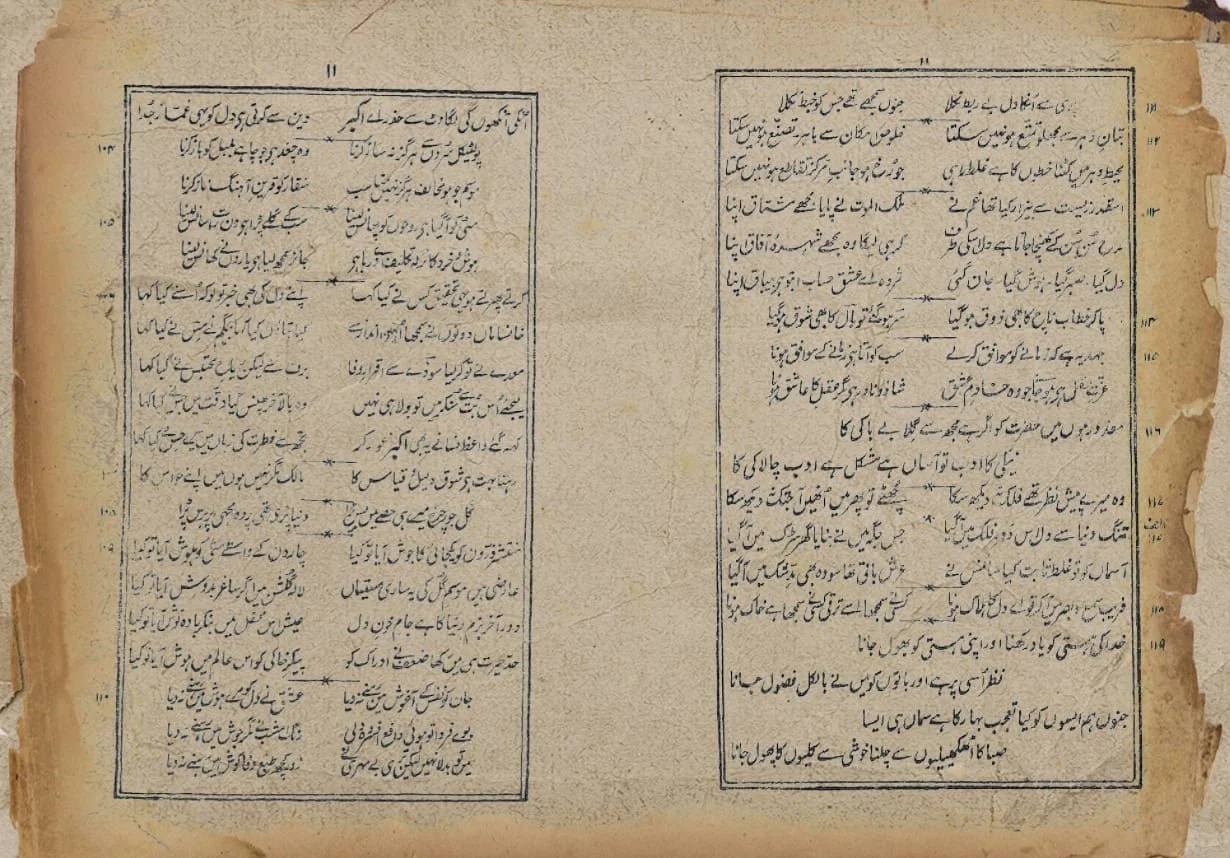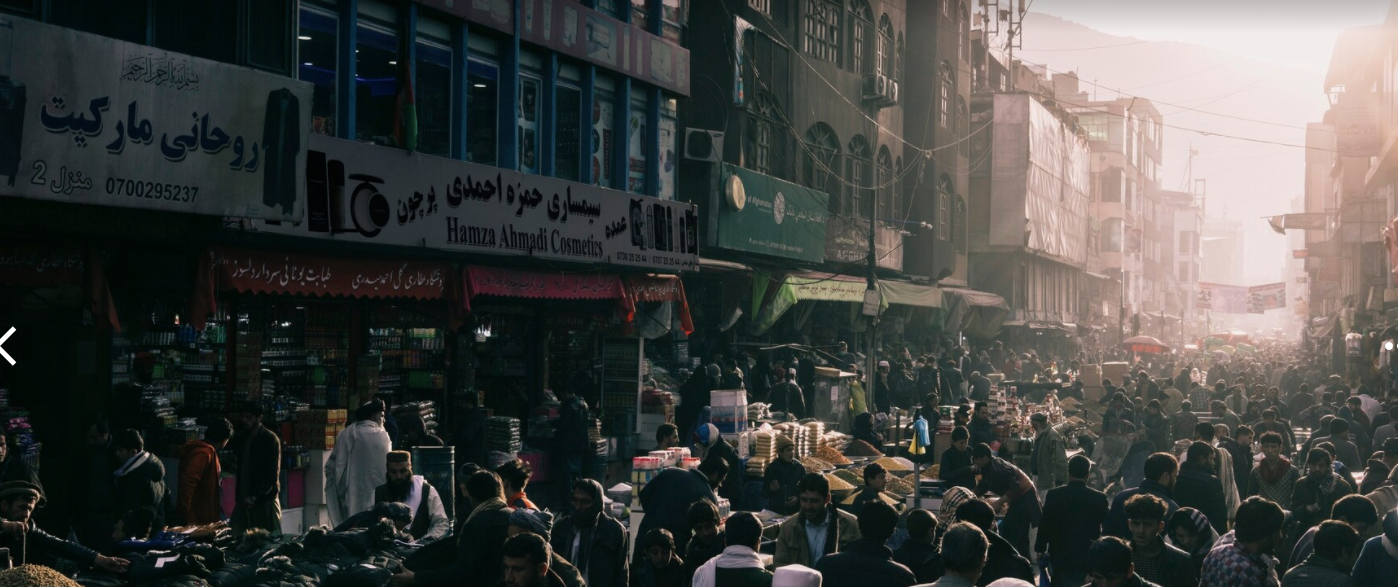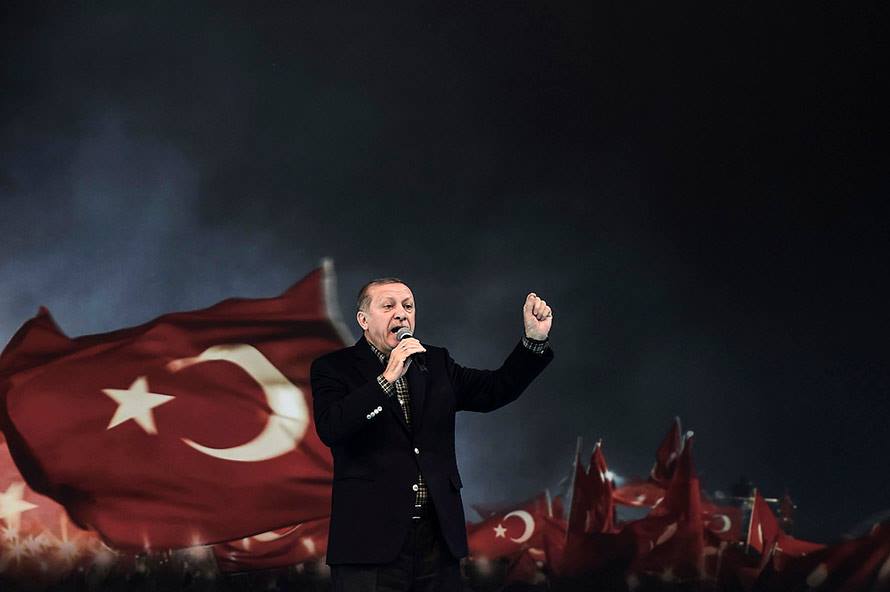articles
By Richard Wood
The Syrian revolutionary movement and jihad of 2012-2024 culminated in arguably the most significant Arab revolution since the overturning of one hundred and thirty years of French colonialism in 1962 by the Algerian FLN (Jabhatu al-tahriri al-watani) and the capture of state power by Nasser’s Free Officers’ (Harakat al-dubbat al-ahrar) in the Egyptian Revolution in 1952 that ended seventy years of British occupation. The ultimate success of Syria’s Hay’at Tahrir al-Sham (Organization for the Liberation of the Levant/Syria, or HTS) in consolidating power in Syria is yet undetermined; even so, the HTS victory must be considered as among the most important revolutions and jihads of the past century and a half for its overthrowing of the Assad Regime (Hafez al-Assad: 1971/73-2000; Bashar al-Assad: 2000-2024), which had ruled Syria with unconscionable brutality for over fifty-four years.
By Abdur Rahman Bari
উপনিবেশ শেষ হলেও, উপনিবেশিকতা বহাল তবিয়তে রয়ে গেছে৷ আধুনিক রাষ্ট্রে সেই উপনিবেশিকতার দাগ বর্তমান। বাংলাদেশ রাষ্ট্রের বুনিয়াদি কাঠামোতে ফরাসি - ইংরেজ - ভারতীয় মডেলের উপনিবেশি জাতিরাষ্ট্র বা মার্কিন রিপাবলিকান মডেলের প্রভাব একচ্ছত্র এবং সূদুরপ্রসারী। ফরাসি - মার্কিন - ভারতীয় স্পিরিটকে সর্বজনীন কল্পনা করে, সাম্য - মানবিক মর্যাদা ভিত্তিক যে রাজনৈতিকতা ও সার্বভৌমত্ত্বের প্রস্তাব করা হয় ; সেই আধিপত্যবাদী জ্ঞানতত্ত্বীয় বাক্সের সমান্তরালে চিন্তা ও তৎপরতার চিহ্ন হিসাবে উক্ত নিবন্ধের সুলুকসন্ধান ৷ রাষ্ট্র সংক্রান্ত চিন্তায় ইউরোপীয় আধুনিক সেক্যুলার জাতিরাষ্ট্র বা রিপাবলিক যে আমাদের একমাত্র মঞ্জিলে মকসুদ না, এর বাইরেও উঁকি দেওয়ার সুযোগ-সম্ভবনা জারি আছে তা স্মরণ করতে ইতিহাসের অলিগলি সন্ধান করবার কোশেশ।
By Sharjeel Imam
This address by Sharjeel Imam represents an instructive addition to contemporary Muslim prison literature. As a pedagogical text that mobilizes and illuminates Urdu poetry at the intersection of politics and hermeneutics, it seeks first and foremost to educate and energize the Muslim youth about a matter of profound political-theological significance.
By SherAli Tareen
The reviewer has made no effort to engage or even describe the main questions, actors, conceptual interventions, chapters, or key categories of the book, a task one might minimally expect of a book review, even, in fact especially, a critical one. Instead, the bulk of the review is devoted to the rather bizarre and insidious claim that the title of the book Perilous Intimacies: Debating Hindu-Muslim Friendship after Empire is deliberately misleading, a ‘sleight of hand’ as the reviewer calls it, for which he holds responsible a joint collusion between the author, publisher, and even the book’s endorsers!
By Tareq-ul Huda
শ্মিট লক্ষ্য করেছেন যে, রাস্ট্র এবং সার্বভৌমত্বের এই কাঠামো মূলত ধর্মনিরপেক্ষতার বাতাবরনে ধর্মতাত্ত্বিক প্রকল্প। রাস্ট্র যে বিধানদাতা, এটা ধর্মীয় সত্যরই নিধর্মকৃত রুপ। শুধু তাই নয়, এর কাজ শুধু অতীত ব্যবস্থাকে সরিয়ে একই জায়গায় নিজেকে স্থাপন করা। রাস্ট্র যে জরুরী অবস্থায় হস্তক্ষেপ করতে পারে, এটা সৃস্টিকর্তার অলৌকিক ঘটনা ঘটানোর ক্ষমতাকে স্থানান্তর করে মাত্র, যা তালালও উল্লেখ করেন। সৃস্টিকর্তা বিশ্ব জাগতিক যে কোন ঘটনার সিদ্ধান্ত গ্রহনকারী। কোন কিছু কখন কিভাবে ঘটবে, কিভাবে শেষ হবে সব কিছু নিয়ন্ত্রন কারী এবং এতে একমাত্র হস্তক্ষেপকারী। আধুনিক রাস্ট্রও তেমন একই ক্ষমতা তার বলয়ে প্রয়োগ করতে চায়। শ্মিট আরো খেয়াল করেছেন যে, সাংবিধানিক লিবারেল রাস্ট্রগুলি মূলত সৃস্টিকর্তার ভূমিকা নিতে চায়। আমেরিকা যুক্তরাস্ট্রের সংবিধান রচনার সময়ে রচয়িতারা জগতের ব্যাখ্যায় আলৌকিকতাকে এড়িয়ে মানুষের বুদ্ধিবৃত্তির ভিত্তিতে দুনিয়াদারির প্রতিষ্ঠা করতে যাবার প্রচেস্টার ভিতর দিয়েই আধুনিক মার্কিন রাস্ট্রের সূচনা করেন।
By Mufti Fazlul Haque Amini
আজকাল অনেক মোল্লা মৌলভীই উক্তি করে থাকে যে, মুজাদ্দিদে আলফেসানী (রহ;) যেভাবে শাসকগোষ্ঠীর সঙ্গে সম্পর্ক রেখে দ্বীনের সংস্কার করেছেন, আমরাও তারই পথ অনুসরণ করে শাসকগোষ্ঠীর সঙ্গে সম্পর্ক গড়ে তুলছি এবং আমরাও সরকারের ইসলাহর জন্য প্রচেষ্টা চালিয়ে যাচ্ছি। আমি বলব, তারা ইসলাহ নয় বরং সরকারের কাছে তারা বিক্রি হয়ে গেছে।
By Tareq-ul Huda
যত বড় মার্কসীয় চিন্তাবিদের উদাহরণই টানি না কেন, তার ভিতরে এই বৈশিস্ট্য থাকবেই। অনেক উদাহরণ ঘেঁটে ক্লান্ত হবার চাইতে, আলোচনার পরিসরের দিকে তাকিয়ে উল্লেখযোগ্য কাউকে মডেল হিসাবে নেয়াই উত্তম। তাই ডাকসাইটে মার্ক্সবাদী তাত্ত্বিক সদ্য প্রয়াত সামির আমীনকেই এবারে বেছে নিলাম। তাত্ত্বিক আলোচনার দিকে না গিয়ে আমিনের চিন্তার মূল সমস্যার দিকটি কাঁচাভাবে ধরার নিমিত্তে কয়েকটি সাক্ষাৎকার এবং বক্তব্য ছেঁকে নিলাম। মজার বিষয় আমাদের দেশের মার্ক্সবাদী তাত্ত্বিকরা ধর্মের আলোচনা করেন মোটামুটি একই ছকে। বলাই বাহুল্য, আমি মার্কসীয় চিন্তার এই ছককে একেবারেই অসাড় না ভাবলেও, তার পদ্ধতিকে ক্ষেত্রবিশেষে ভুল, সমস্যাকীর্ন এবং ফলাফলকে যথেস্ট অসম্পূর্ন মনে করি।
By Ahmed Bin Qasim
For the Kashmiri Muslim who desires liberation, i.e. Azadi, from India, two common responses have historically emerged. First, Indian liberals (and, liberals in general) pathologize this desire, turning it into an illness and an abnormality that ought to be explained, accounted for, and remedied. It is argued that something must have caused the Kashmiri Muslim, who is now seen as a patient of sorts, to have this desire.
Palestinians have once again made a historic stand against the renewed attack by Israeli colonial settlers and their occupation security forces. The heavily armed settler army attacking praying worshippers inside al-Aqsa were met by Palestinians creating makeshift barricades to keep the military out of the holy mosque. These initial scenes of several hundred Palestinians trapped inside al-Aqsa, building obstacles (with chairs and tables from the mosque against one of the best armed militaries in the world), while hosting Quran study circles and children completing their schoolwork, have been met with expanding waves of resistance from the rest of Palestine. Palestinians in the larger occupied West Bank and Gaza have been joined by Palestinians living inside Israel (Historic Palestine ‘48) who have launched protests unprecedented since the 1947-48 War. In the process they have unified not only the Palestinians separated across colonially demarcated borders inside the occupied whole of Palestine but also its diaspora, as well as the Muslim umma, and peoples across the world to struggle in a renewed uprising.
By Richard Wood
“The withdrawal of foreign forces, in excess of 130,000 at its height in 2014, if completed, would make the Taliban the most potent and formidable political and military force in Afghanistan; leaving it in the position to determine the political future of the nation, along with their primary sponsors, Pakistan and the Gulf Arab states, particularly Saudi Arabia and Qatar, as well as Iran, which also, surprisingly, contributed significantly to Taliban military efforts in the west and northwest, coordinated by the Pasdaran/IRGC/Quds Force from 2010-2016. The Taliban insurgency has thus become one of the longest and most successful insurgencies in modern world history, as well as in the five centuries of Muslim resistance to western imperialism.”
By David Brophy
“From Beijing’s point of view, of course, all this is of secondary importance. In official rhetoric it was the arrival of ‘Pan-Turkism’ and ‘Pan-Islamism’ at the turn of the twentieth century that laid the foundations for today’s violent extremism. But here too, history can complicate things. These twentieth-century ideologies did not automatically bring with them a critique of Chinese rule in Xinjiang, and more frequently expressed hope for anti-colonial collaboration with China. The 2019 White Paper cites Masʿud Sabri and Muhämmämd Imin Bughra as representatives of these radicalising trends, but both men spent considerable portions of their lives working alongside Chinese nationalists in the Guomindang—hardly the CV we would expect from a pair of die-hard extremists. A third much-maligned villain of this period is Sabit Damulla, who served as Prime Minister of the short-lived East Turkistan Republic in 1933–34. Yet, although obviously inspired by ‘Salafist’ theology, there is nothing in his writings to indicate that he felt religiously obligated to engage in anti-Chinese resistance.”
By Mohammed Harun Arsalai and Hira Ausaf Shafi
“President Ghani was forced to fire NDS spy chief Masoum Stanikzai over the murders, marking the first known repercussion the NDS has faced since Ghani took office. The president’s sudden "shock" about civilian casualties is all theatrics, as this is not the first, second or 20th time government killings have taken place. His gesture seemed to be more of a campaign stunt, rather than a substantial change in policy, as Ghani has been confronted with similar stories throughout his tenure as president, which he consistently ignored.”
By Zaman Asaduz
“The police and prison combination is probably the largest force to hinder da'wah activities in Black communities. We are also realizing that inside America, Black people who engage in struggle are treated like terrorists. What Islamists are to America outside in the global War, Blacks are to white-power inside America. This relationship between Islamists and Black strugglers then, is not one of moral solidarity, but rather of an ontological consensus.”
By Zunaira Komal
"However, as Kashmiris – activists, freedom fighters, scholars – have demonstrated for a long time, the illusion of “statehood” under occupation has been a cruel and clever lie. The long on-going fight is thus not about reinstating this temporary provision that maintains autonomy-in-permanent-abeyance. So, what then is this fight about? What is the real terror that the revocation signals if not a newly marked non-autonomy? In this time of fleeting global scrutiny, in which purported allies and supposed neutral mediators peddle a false and ever-deferred peace, we must correctly identify the relationship of Islam to both the resistance and to the repressive paranoia of the Indian state. While Islam is downplayed in both right-wing and liberal-secular discourses about Kashmir, it simultaneously undergirds the present moment’s horror and anxiety."
“Many young Turkic Muslims continued to fast across the Uyghur Autonomous Region in Northwest China. At night restaurants were packed with students waiting with slices of watermelon and pieces of bread that had been distributed throughout the restaurant for those who were breaking the fast. The students waited for a silent signal from restaurant workers that it was time for iftar and that they could begin to eat and drink. Few people talked openly about the fast. Those who fasted were the silent majority. “
“Though Khashoggi was very much a pillar of the system and royal court, at most a reformist or ‘unreconstructed democrat,’ MBS still had plenty of motivations to eliminate him…the brand of ‘political Islam’ he favored and championed was a cross between those of the Muslim Brotherhood, Qatar, and Turkish President Recep Tayyip Erdogan—namely, MBS’ top three bêtes noires, since they represent the opposite model (within Islam) of the boy King’s own rule.”
"It is no exaggeration to say that in today’s French mainstream mediascape, Erdoğan is increasingly replacing former Iranian President Mahmoud Ahmadinejad or even Saddam Hussein as “Foreign Islamist Public Enemy Number One.” He has become a dangerous scare-and-hate figure, l’homme à abattre as the French expression goes (“the man to shoot down”), or at best “The Scary Muslim We Love to Hate.” In other words, he is indeed the geopolitical equivalent of a Tariq Ramadan, and one observes that his fate and treatment in French media is more or less the same."
"To our knowledge, no other high-profile personality accused of rape during that same time frame, including most notably President Macron's two ministers Gérard Darmanin and Nicolas Hulot, has been placed in preventive detention while innocent until proven guilty. Ramadan remains the only one. This strongly suggests that the rape accusations were just a pretext to silence and eliminate him, as France’s media and politicians had been trying to do for a good fifteen years already, without success. The obvious double standard, easily visible in every aspect and at every stage of this affair, therefore suggests that Tariq Ramadan is indeed a political prisoner."
"In what follows, I suggest that the truly odd legislative developments in the Ramadan case—the justice of exception we are witnessing at work, which will be addressed in the second half of this article—may be explained at least partially by the national (and to a lesser extent European) context in which they are occurring: a culture characterized by intense and pervasive Islamophobia in general (whose varied manifestations and links to France’s colonial history are beyond the scope of this piece) and more specifically, an already old French campaign to eliminate Ramadan from the intellectual, social, political and religious landscape of the nation."
"This article argues that Hasan’s narrative is not only an impetuous and intellectually dishonest account of a complicated history, but also conceptually flawed. By presenting Islamists as terrorist fanatics created by the very enemy they are fighting, Hasan effaces the crucial role of Islamists in the movement against Israeli colonization, and understates their popular support. Elementary knowledge of the history of the Palestinian cause and Islamism in the Middle East refutes these hasty claims."
"A specter is haunting South Asian diasporic youth—the specter of the Aunty. All the diasporic youth of South Asia have entered into a holy alliance to exorcise this specter in order to disclose their own modern being. Reviled in her multiple forms, the Aunty is, as Maria Qamar argues, ‘a cross-cultural phenomenon that isn’t limited to a family member; she could be a neighbour, a family friend, or just some lady on the bus who wants to throw some casual black magic your way.’ Magical and entrancing, the Aunty can indeed be found everywhere, awaiting her coming exorcism."
Sayyid Qutb was amongst the avant-garde of the cadre of Muslim intellectuals who attempted to address the epistemological crisis. His work operates squarely under the assumption that the state of the Muslim umma is in desperate need of revival. He sought to address how this came to be and suggest ways to actualize an alternative future. Central to this project was his reconceptualization and rearticulation of the long-established term “jāhiliyya.” The following discussion will take Qutb’s conception of jāhiliyya as its point of departure in examining how he grappled with his perception of the larger epistemological crisis facing the Muslim world.
In this work, I argue that the Soviet invasion of Afghanistan and the devastating civil war that followed was a period of history that defies encapsulation within binaries of “good” and “evil”. This work examines conflicting historical representations of Ahmad Shah Massoud and his role in these two destructive wars. It aims to demystify the image of a warlord.
Why should “they” hate “us”? The very question is on its face absurd, delusional, revealing of an aggregate detachment from reality so virulent in its evasiveness as to be deemed clinically pathological. Setting aside the wholly-contrived “confusion” professed in the aftermath as to who might be properly included under the headings “we” and “they,” the sole legitimate query that might have been posed on 9-1-1 was—and remains—“How could ‘they’ possibly not hate ‘us’?"
In our so-called “post-ideological” world, even the most sincere observers have fallen trap to a myth perpetuated by the liberal order: that strategic political action or realpolitik transcends (or is devoid of) ideology. A case in point is the Tunisian Nahda movement’s decision to separate its political activities (primarily its political party) and its da’wah based activities. In 2016 the Nahda movement announced its shift from an “ideological movement engaged in the struggle for identity, to a protest movement against the authoritarian regime, and now to a national democratic party."
Using the Prophet’s mantle as a case study can shed light on the ways in which Islamic relic veneration encompasses a number of paradoxical relationships, namely the connection between the inaccessible and accessible. As an object at the crossroads of different disciplines and art forms, the Holy Mantle has a far-reaching impact that reveals much about the efficacy of such relics in reaching Muslims globally, especially when they have been translated across verbal channels.
In order to accomplish the mission of the “People’s War on Terror,” the Party Secretary of the university Zhou Xuyong declared that all “static” (zaoyin) and “noise” (zayin) would need to be eliminated. Anyone who demonstrated the slightest resonance with unapproved Islamic ideologies was to be purified through a process of “reverse osmosis” (fan shentou). He said the goal was to create an atmosphere in which Uyghur Islamic “extremists” scurried across the street like rats while the public surrounded them screaming their disapproval and beating them in righteous anger.
In the rest of this essay, we examine the consequences of the May 2013 massacre in Dhaka, Bangladesh. We collected written memories, reflections, poems, novellas, videos, other literary and non-literary artifacts in the aftermath of the massacre. These are some of the forms in which the massacre is memorialized within the Islamist counterpublic. These materials are the remaining traces — like dried blood — of the actual sets of events. It is a living archive that not only allows an immanent embodied critique of a secular society, but provides a marginal possibility for a realist speculation in retrospect.
Malcolm’s leave to the Hajj is vital. A series of circumstantial instances placed him within a worldly, proximal corporeality, a rich hapticality of the flesh, with an illuminated, emphatic sense of fungibility more external than what reciprocity could provide. Where reciprocity, the vehicle for recognition, is, to its own freely detestable demise, non-exchangeable, the one who lives for recognition nullifies, in the end, from the start, the capacity to attain a freedom independent of the body. He frequents the times he was met with unconditional hospitality and appreciation on behalf of Muslims across complexion and convention.
Syria's brutal repression of mass demonstrations across Syria in 2011 marked a decisive model of how authoritarian Arab regimes could avoid the fate of Ben Ali in Tunisia and Mubarak in Egypt (and later, Gaddafi in Libya), who were seemingly swept away by popular revolutions, led by a coalition of leftist youth, liberal, constitutionalist reformers, and moderate, democratic Islamists, such as Ennadha and the Muslim Brothers. Bashar al-Assad and his 'Alawi generals and security officials were determined to eradicate the possibility of mass popular participation in political life, which would have made Baathist and 'Alawi control of the Syrian state and economy impossible.






























